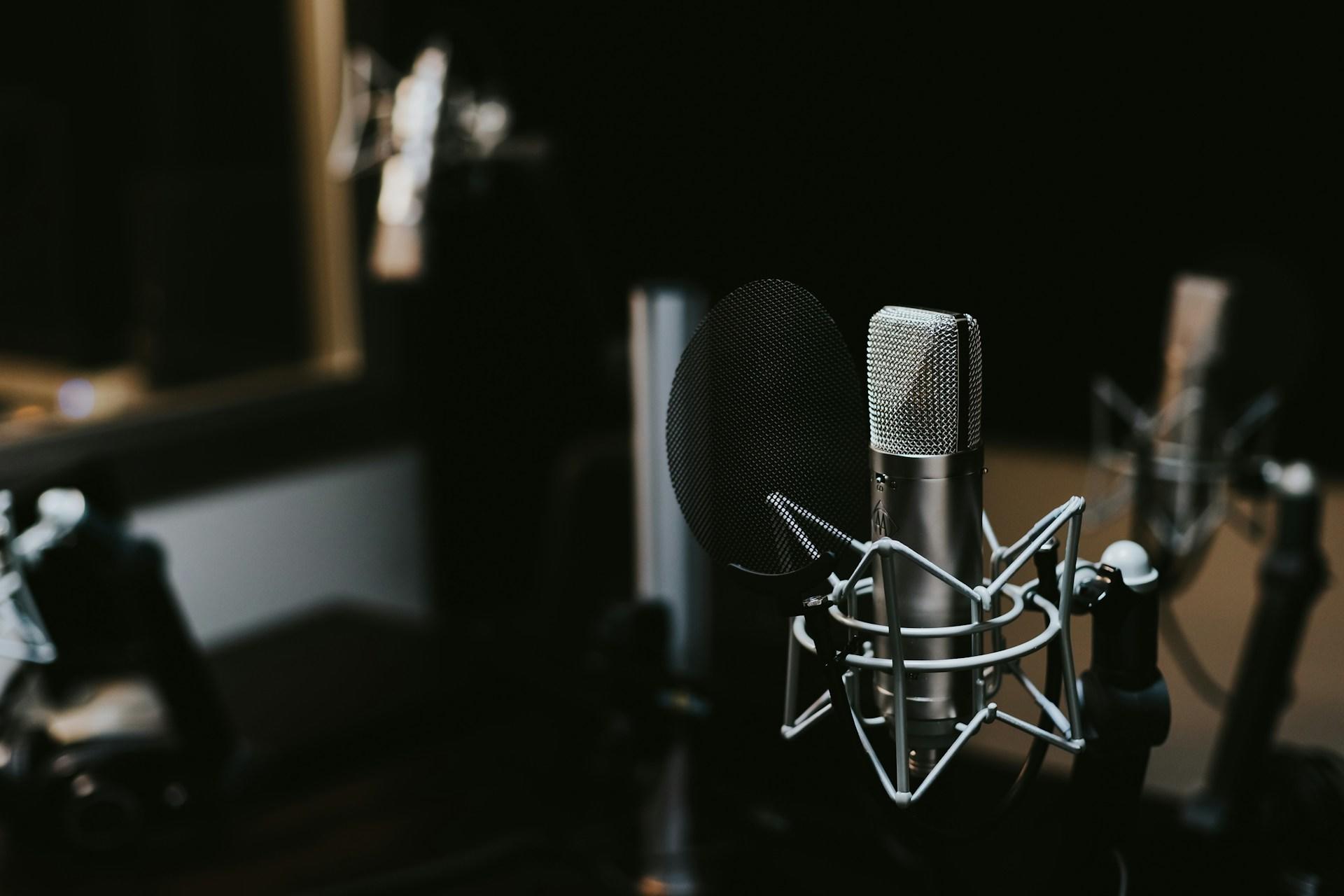“Singing provides a true sense of lightheartedness. If I sing when I am alone, I feel wonderful. It's freedom.” - Andrea Bocelli
If you're learning how to sing or are already at a good level, you should always be looking to improve. One way to do this is by recording yourself singing and listening to your performance. You may also be interested in recording yourself, creating your own music, or simply making a record of your ideas.
In either of these cases, one of the most important things you can invest in is a good microphone. It's not the only thing you'll need for a home studio or recording setup, but you should still do your research before making a purchase.
In this article, we'll look specifically at some microphones that are suitable for singers looking to record themselves at home.

Should You Choose a Condenser or Dynamic Microphone?
When it comes to choosing the best mic for recording in your home studio, you'll see that you have the choice between condenser or dynamic microphones.
The main difference is how they work on a technical level, with condenser microphones producing an electric signal through capacitance and dynamic microphones using electromagnetic induction.
For singers, this isn't the important difference, but there are some important differences that you should keep in mind when shopping for a good mic.
So what are the key differences between a condenser microphone and a dynamic microphone?
Condenser Microphones
Condenser microphones will require an external power source because of the way they work. They tend to be more sensitive which makes them popular for studio recording, particularly vocals and acoustic instruments.
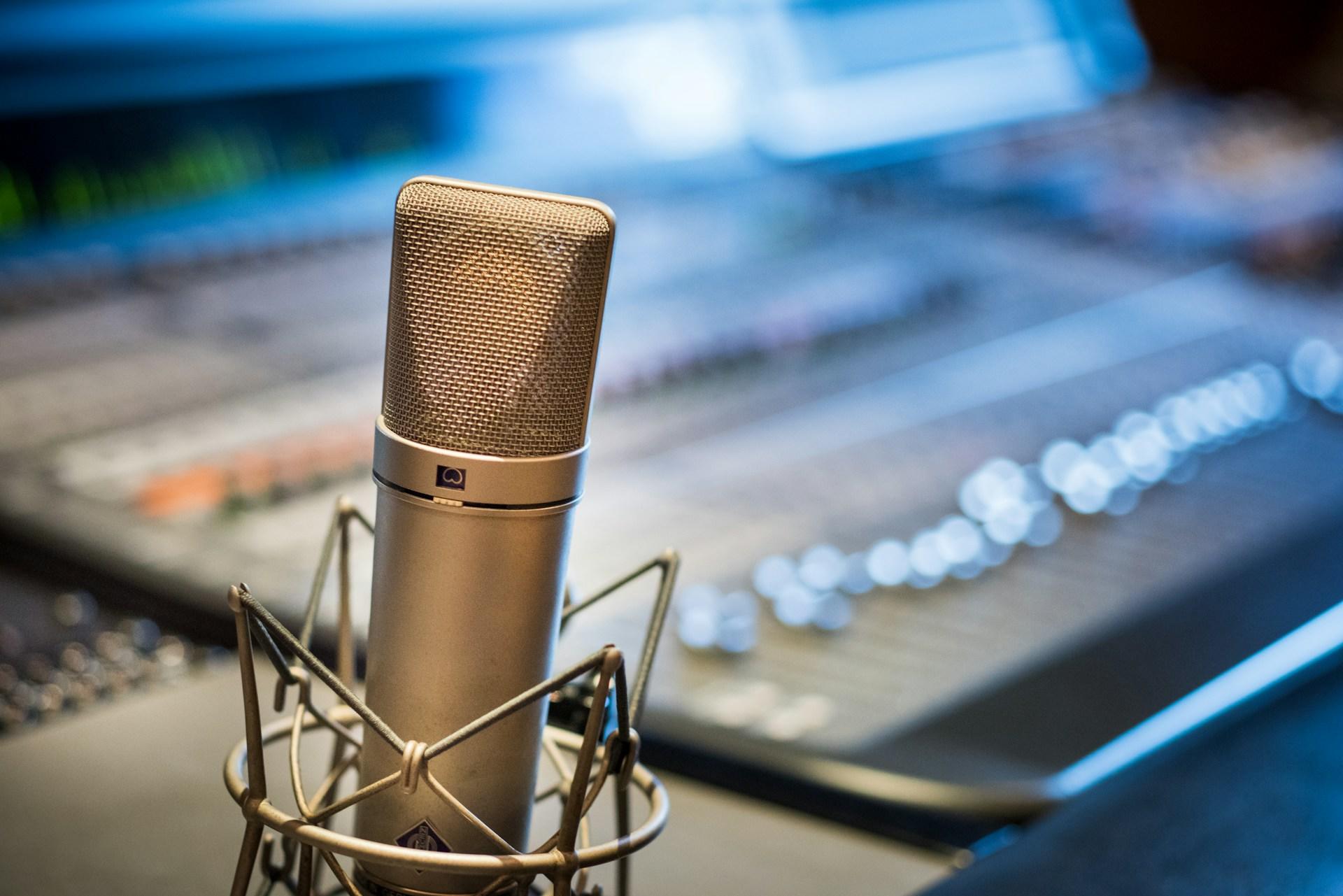
However, they're typically more expensive, less durable, and not recommended for outdoor recording or stage performances.
Dynamic Microphones
Dynamic microphones don't require an external power source because they generate the electric signal through electromagnetic induction, meaning you can plug them straight into an audio input.
They also tend to be more durable and suited for performances. Since they're also cheaper, a dynamic microphone could feature in your home studio plans if you're on a tight budget and just looking to record yourself to improve your singing.
Great Mics for Recording Your Singing
Since we don't know your budget or what exactly you'll be using your microphone for, we've chosen a range of microphones, both condenser and dynamic, of different prices.
These should provide you with a good starting point as you put together a home studio or home recording setup.
Shure SM58
The Shure SM58 is one of the microphones preferred by U2 and Björk. It's a hugely popular microphone for singers simply because of its sound quality.
It's a sensitive microphone that's also robust and ergonomic. It's good for a variety of situations, including performing live in concert.
Versatility is the name of the game here and it's surprisingly good value for money.
Singers with deeper voices may also be interested in the Shure SM58 since it can boost frequencies under 100Hz.
Of course, each microphone is only as good as the rest of the setup and you'll need to also think about the right sound cards for recording your voice.
Rode NT1A
The Rode NT1A is one of the better microphones out there for singers.
This is a studio condenser microphone comes highly recommended. The sound is great, it doesn't pick up too much background noise, and it comes at a good price.
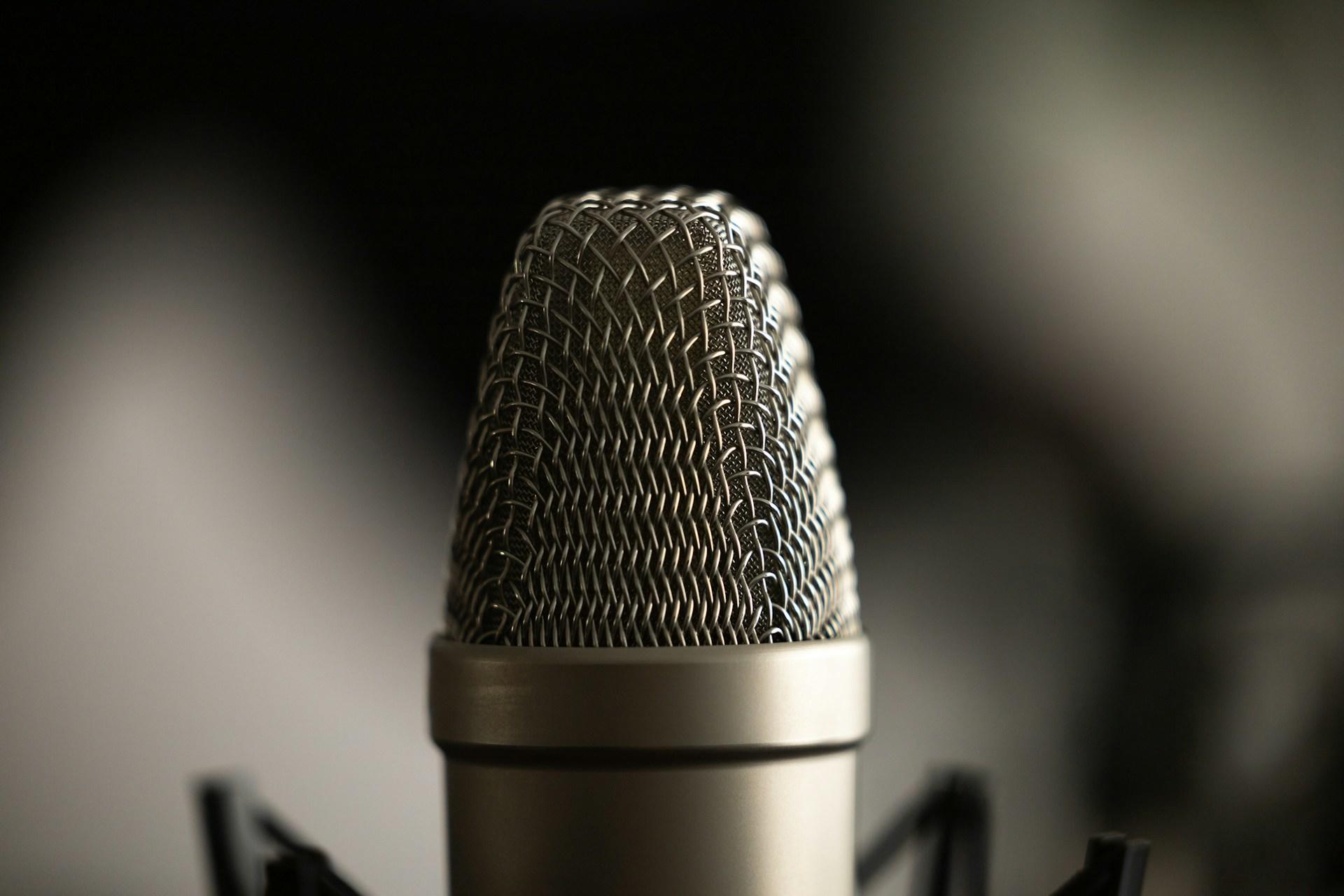
This is a versatile microphone from a reputable brand.
AKG D5
The AKG D5 is a professional dynamic super cardioid vocal microphone that will give your voice clarity, balance, and presence.
It's particularly good for deeper voices with a sound that's clear, balanced, and powerful.
The AKG D5 is commonly used for stage performances, but with a mic stand, you could also comfortably use it in your home recording studio.
MXL 770
The MXL 770 mic is a multipurpose condenser mic for vocalists and singers. It's also incredibly good value for money and offers soft, clear, and balanced sound. It's great for practising and recording yourself singing so you can listen back to yourself, provided you have good headphones, too.
The MXL 770 is also a popular choice for rappers, too, since it has good bass and offers a good balance against background noises.
Shure SM7B
The Shure SM7B was first created in 1976 and has remained a popular stable for singers since it offers a smooth, flat, wide-range frequency response, which is great for music, speech, and vocals in studios.
The Shure SM7B is a microphone designed with vocals in mind and has been used by many famous artists across many genres, including for Michael Jackson's Thriller.
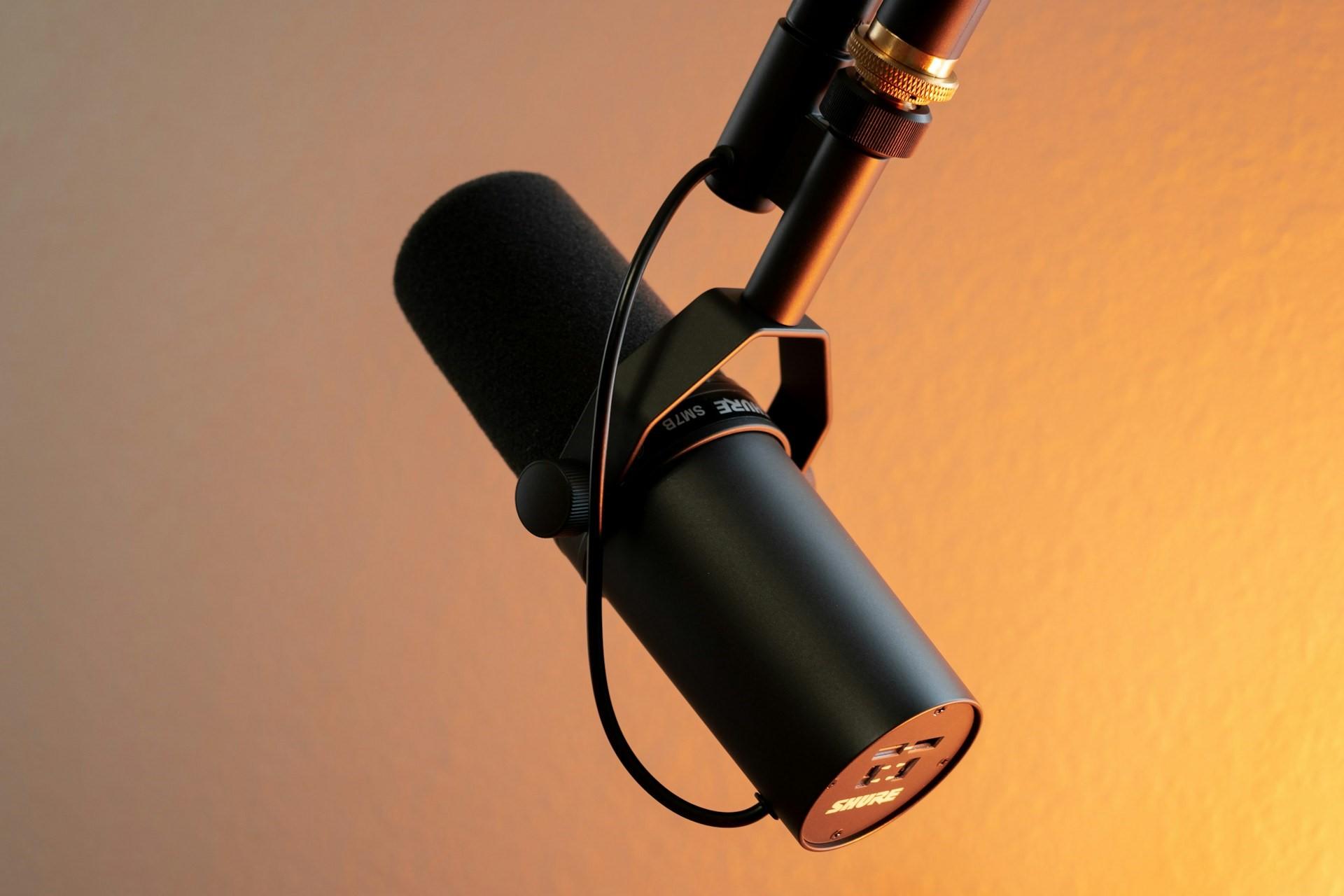
Given its quality and credentials, however, the Shure SM7B is quite a bit more expensive than some of the other microphones we've seen so far so make sure you consider this when planning the budget for your home studio.
Sennheiser MD421
The Sennheiser MD421 is a cardioid microphone that's great for recording your voice.
Much like the Shure SM7B, the Sennheiser MD421 is another mic has been around for a while. For other 3 decades, this has been one of the most popular dynamic Sennheiser microphones on the market.
It features a five-position bass control and it's popular for vocal performances, group and background vocals, and even more powerful instruments like guitars and drums.
AKG C214
The AKG C214 is a condenser microphone that comes highly recommended for singers.
It's particularly useful for singers with a loud voice as it works well at higher volumes. However, because it produces a warm sound, it tends to soften voices, especially nasal voices.
It's not great for rap, though. For that, stick with the MXL 770.
Rode NTK
The Rode NTK is a highly recommended large-diaphragm valve condenser microphone that offers a warm and soft sound.
This is a studio-quality product so it has the price to match. It's one of the more expensive microphones we've listed so far, but you do get what you pay for.
This microphone is recommended for professional singers and those looking to make studio-quality recordings. If you're just practising your singing, you won't need to invest anywhere near as much in a microphone as the Rode NTK, but if it fits in your home studio budget, then go for it.
Audio-Technica AT 2035
The Audio-Technica AT 2035 is another large-diaphragm condenser microphone.
It's not quite as expensive as the Rode NTK microphone, but it's still one that we'd recommend.
It's praised for its sensitivity, warm middles, and soft trebles.
Neumann TLM 102
The Neumann TLM 102 is available at a price similar to the Rode NTK microphone and is also a large-diaphragm condenser microphone.
It's not just good for recording vocals, though, you can also use it for recording instruments including drums and percussion.
Recording voices is what we're interested in today and the mic comes with an integrated pop shield. However, if you buy a cheaper mic that doesn't have one, don't worry. You can buy pop shields for very little.
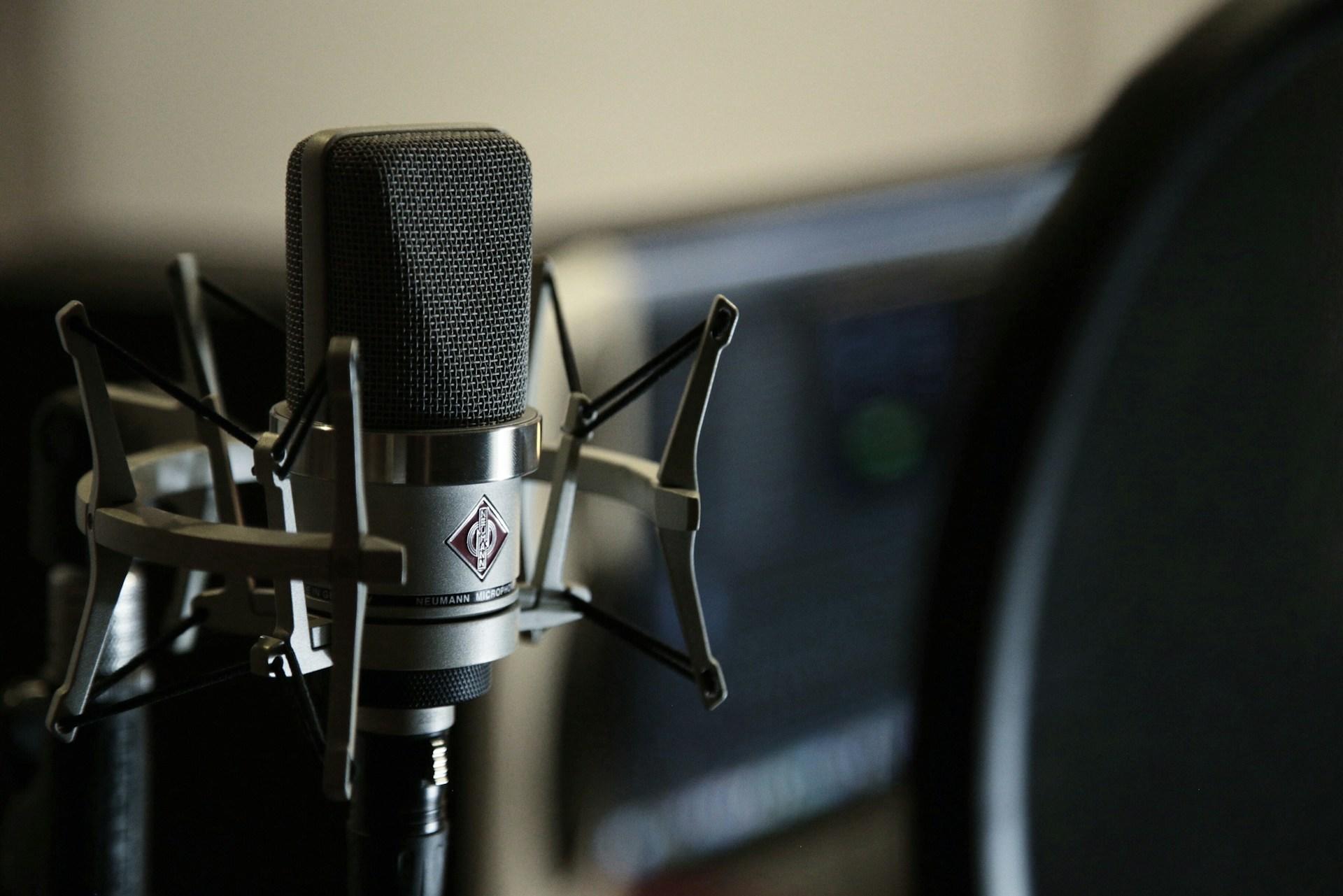
As we said at the top of the article, different singers will require different microphones so the best thing you can do is try before you buy. This is where your local music shop comes in.
If you can go into a store and speak to somebody before you buy, we'd recommend it, especially for some of the more expensive microphones.
Remember that an excellent microphone will make your singing sound better, but it won't make you a better singer.
If you want to improve your singing, why not look to a private singing tutor on Superprof?
There are different types of private tutorials available and each comes with pros and cons so think carefully about which is right for you and your budget.
Face-to-face private tutoring is arguably the most effective way to learn as your singing coach is there in the room with you, but this also comes at a cost.
Online tutoring has become more popular recently and for beginners, this offers a more affordable way to enjoy one-on-one tutoring. However, some students don't learn as effectively without the tutor there in the room with them.
Last but not least, group tutoring offers an affordable way to improve your singing with other students. You won't get as much one-on-one time working with your tutor, but you can save quite a bit since every student is sharing the cost of the tutor's time and expertise.
You can use these free sessions to try a few different tutors out before choosing the one that's right for you, the kind of music you like to sing, and how you like to learn.
Just search for singing tutors and you can start browsing their profiles, see how much they charge, read reviews from their other students, and check if they offer their first lesson for free.
Summarise with AI:

